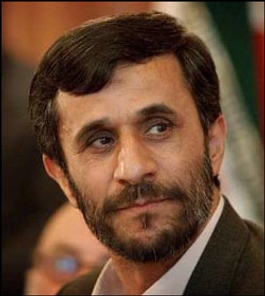BY NATASHA BARSOTTI – High court judges in Iran have sentenced four men to death by hanging for alleged sodomy, according to the Iranian Human Rights Activist News.
![]()
The four — Saadat Arefi, Vahid Akbari, Javid Akbari and Houshmad Akbari — are reportedly from Choram, a town in the southwestern province of Kohgiluyeh and Boyer-Ahmad.
The European gay news service Pink News quotes London-based human rights lawyer Mehri Jafari as saying that the province’s remote location makes it challenging to exercise any influence on the situation. “Kohgiluyeh and Boyer-Ahmad is one of the most undeveloped provinces in Iran and it is obvious that a lack of access to lawyers and fair trial can be considered a serious issue in this case,” Jafari said. “After this announcement it is very likely that the execution will be carried out soon.”
A December 2011 Human Rights Watch report, “We Are a Buried Generation,” notes that the Iranian penal code’s definition of sodomy includes both consensual and coerced sex between two men. If both men are “mature” and sex is consensual, the sentence is death. Punishment for sex between women is 100 lashes for the first three offences and the death penalty for the fourth.
In many cases, it’s not clear whether those accused of sodomy are gay or had sexual relations. Very often gay Iranians are prosecuted on false charges of rape and other offences to justify their executions, making it next to impossible to accurately determine the number of gay people who are executed, tortured or imprisoned, according to a new report by London non-profit Small Media. Official records of how many gay Iranians have been executed are non-existent. Unofficially, estimates run from 400 to 5,000, “with no way of knowing which of these is closer to the truth,” states LGBT Republic of Iran.
No surprise, considering the infamous September 2007 declaration by the country’s president, Mahmoud Ahmadinejad, that there are no gays in Iran.

The 150-page report, launched in London on the eve of International Day Against Homophobia, documents the experiences of gay Iranians who live or have lived under the homophobic Tehran regime and the pivotal role of the internet in helping them build community within the country, become more aware of queer life in other countries and circumvent the government’s attempts to crack down on freedom of expression online and off.

 Why you can trust Xtra
Why you can trust Xtra


